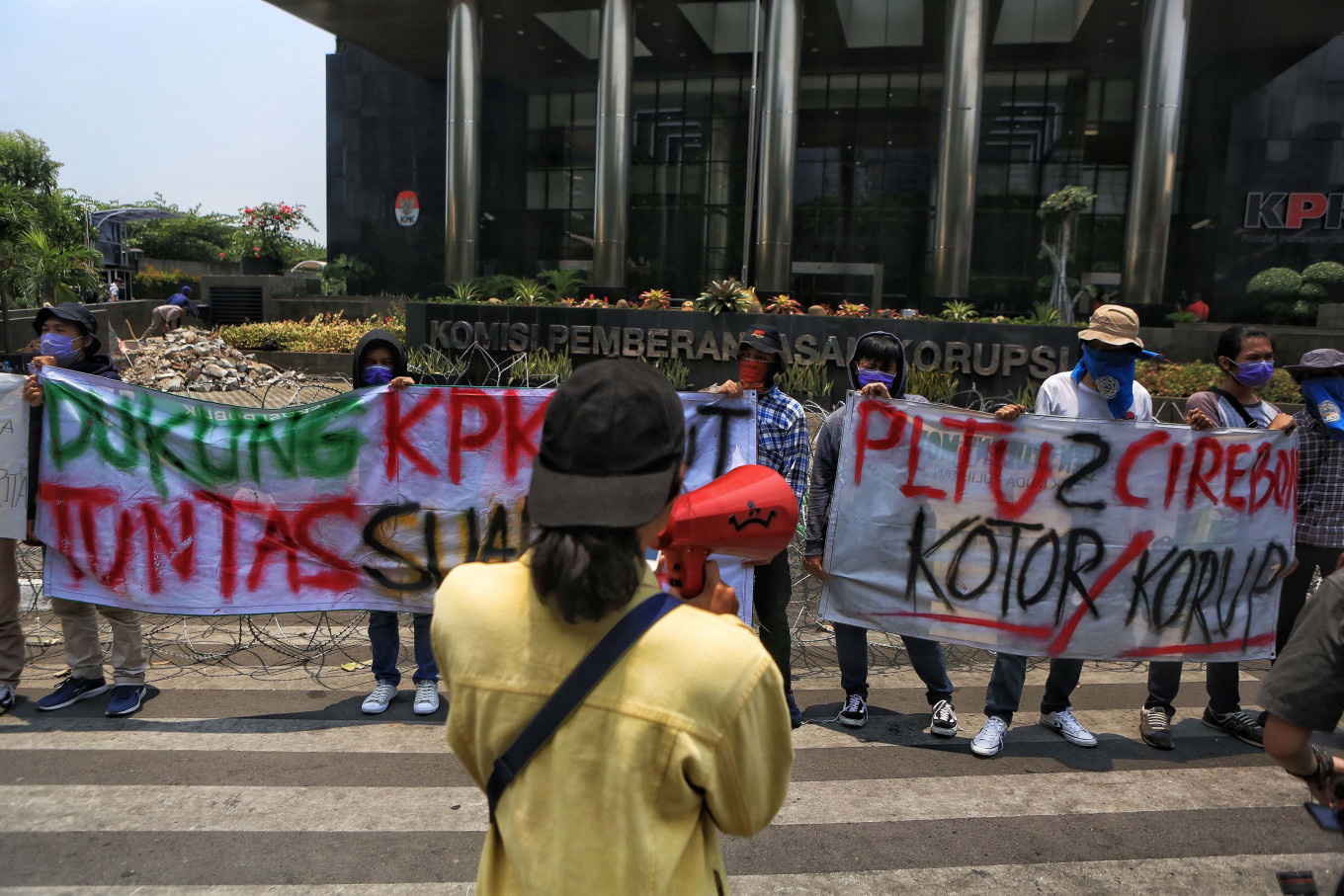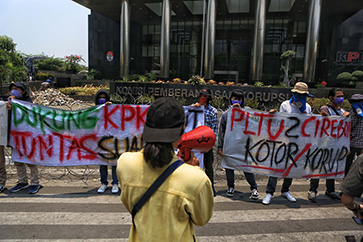Popular Reads
Top Results
Can't find what you're looking for?
View all search resultsPopular Reads
Top Results
Can't find what you're looking for?
View all search resultsDesacralizing anticorruption agency does not defang KPK
If the KPK is granted the same legal status as other law enforcement agencies, would the revised law really threaten its roles, functions and independence?
Change text size
Gift Premium Articles
to Anyone
I
n the debate on the revised Corruption Eradication Commission (KPK) Law, which came into force on Thursday, we should look at the bigger picture through the lens of appropriate organizational principles.
As the state’s antigraft body that has made numerous breakthroughs, the KPK should operate under proper principles, including having control and supervision over its duties, functions, authority and performance. Implementing these principles does not necessarily intend to defang or even end the KPK but is an effort to prevent the sacralization of an institution. In other words, an institution with such centralized authority has the potential to abuse its power.
Revision of the law has been fueled by the belief that the revision would weaken its independence in implementing its tasks and functions. This belief drove the widespread recent demonstrations, which nevertheless ended in the passing of the new law in September, while deliberation of other controversial bills was delayed.
Advocates of the revision have expressed support for the changes in the KPK’s roles and powers to impede the commission from becoming an extraordinary state body. This revision actually attempts to normalize the KPK’s status in the constitutional law system. So if the KPK is granted the same legal status as other law enforcement agencies, would the revised law really threaten its roles, functions and independence?
There are three fundamental issues concerning the revised law from the perspective of constitutional law studies. First, the KPK’s independence under the executive power. Second, the controlling mechanism over its wiretapping authority. Third, the establishment of a supervisory council.
The questions raised include whether a supervisory council could effectively mitigate power abuse within the KPK. Further, would the controlling mechanism on the wiretapping authority prevent power abuse or contrastingly, will the mechanism actually hinder the KPK’s work in corruption eradication?
Control and power balancing are fundamental premises in the concept of the rule of law. State institutions should also be subject to scrutiny, because of the high possibility of power abuse, particularly as the KPK possesses such great powers, and scrutiny is in line with the good state governance principles.


















